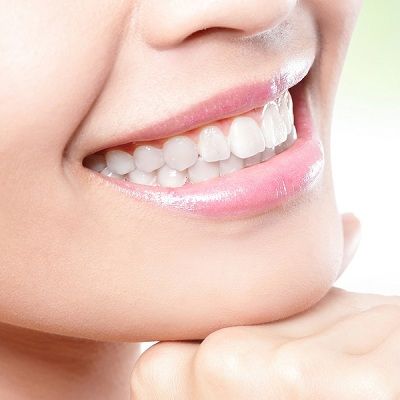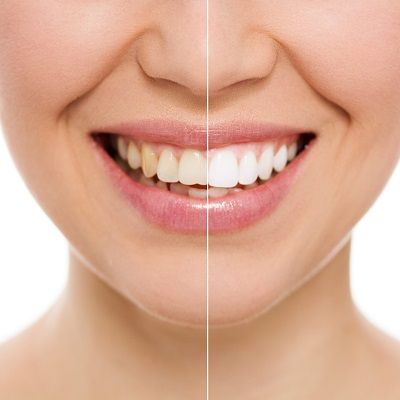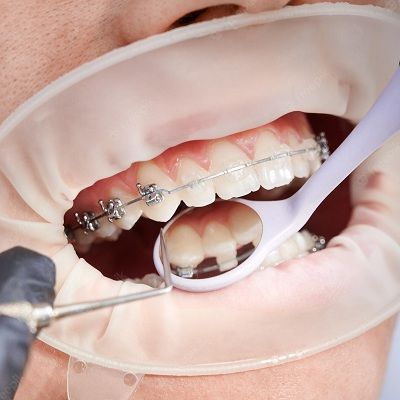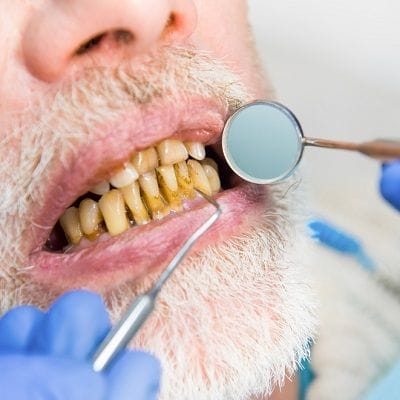
Coffee can also stain your teeth as it can stain your clothes. This is also true when it comes to coffee. Coffee includes tannins, a form of polyphenol that degrades when exposed to water. They can also be present in drinks like wine and tea.
Colour components attach to your teeth because of tannins. When these compounds adhere to each other, they might leave an unsightly yellow tint. Teeth can be discoloured with just one cup of coffee every day.
What Causes Coffee to Discolour Your Teeth?
Coffee stains teeth primarily because of tannins. Tea and red wine also contain tannins, so these beverages can discolour teeth.
The strong enamel that protects teeth from deterioration and injury is called enamel. On the other hand, enamel has microscopic holes that can trap little things like tannins. Tannins are brown pigments. As a result of being stuck in pores, your teeth can turn a yellowish-brown tint.
Remember that tannins have some redeeming features before entirely eliminating them from your life. Tannins are a form of polyphenol, a type of antioxidant found in plants. As a result, tannins are a vital source of coffee’s health benefits.
Most Effective Methods to Remove Coffee Stains From Teeth
There are several methods to remove coffee stains from teeth. Here, we’ll go over the top five approaches.
Toothpaste That Whitens:
Abrasives are found in whitening toothpaste. These abrasives remove stains from your teeth while restoring their natural colour. The disadvantage of this procedure is that it scrapes away some of your protecting enamel. Many whitening kinds of toothpaste circumvent this by using softer abrasives such as sodium bicarbonate and calcium carbonate. However, these milder abrasives may not be powerful enough to remove stains from your teeth.
Other compounds that might brighten your smiles, such as citrate or peroxide, may be whitening kinds of toothpaste.
Teeth Whitening Strips
Over-the-counter whitening strips are another popular alternative for removing stains from teeth. Contrary to popular belief, whitening strips do not contain bleach (which is a good thing because ingesting it would be harmful).
Many of the strips include hydrogen peroxide, which is the stain-removing ingredient. Hydrogen peroxide strips are more effective than whitening toothpaste, according to research. However, hydrogen peroxide can induce dental discomfort and alter the microbiota of your mouth (bacteria).
Too much use of teeth whitening strips can cause lasting harm to your teeth if you choose peroxide whitening strips, attempt to use them only once or twice a week and look for lower peroxide concentrations.
Newer whitening agents, such as phthalimide peroxy caproic acid (PAP) white strips, are also available. Because they are newer, there isn’t as much evidence about their long-term safety.
Overnight Treatments on Prescription
At-home whitening procedures might also be prescribed by your dentist. Carbamide peroxide, a specific gel, and a mouthguard are used in these treatments. Because peroxide is present in the treatments, the same risks of dental sensitivity exist. However, the results last longer than white strips used at home.
Teeth Whitening By A Professional
In-office teeth whitening treatment using hydrogen peroxide or calcium peroxide may be available from your dentist. Changes in your teeth’ colour can remain considerably longer if your dentist uses more substantial amounts of these chemicals. However, because the concentrations are so high, an expert must perform these treatments to avoid tooth or mouth harm.
Maintaining Good Oral Hygiene
Any dentist will tell you that the essential thing you can do for your teeth is practice good oral hygiene. Brushing and flossing are essential, as are regular dental cleanings and examinations. Oral hygiene may not eliminate all teeth stains, but it will keep your teeth and gums healthy. Enamel strength is also helpful for preventing dental discolouration.
Is Using Teeth Whitening Procedures Every Day Safe?
According to studies, frequent exposure to hydrogen peroxide, particularly at high concentrations, can harm your teeth. It can erode your enamel, create tooth sensitivity, and injure your gums and surrounding tissue.
Following the instructions on the package is the safest method for using teeth-whitening products. If the product didn’t produce the desired results, wait the prescribed time before attempting it (or another whitening product).
Consult your dentist about your best options. Your dentist can also establish if the colour change in your teeth is caused by something other than coffee.
What Are The Best Ways To Avoid Coffee Stains on Your Teeth?
Coffee stains on your teeth can be time-consuming and costly to remove. Fortunately, avoiding coffee stains on your teeth is considerably simpler:
- Consider drinking your coffee with a straw. It reduces the amount of coffee that comes into touch with your teeth.
- Brushing your teeth within 30 minutes of consuming coffee helps to remove tannins from your enamel before they may stick to your pores.
- If brushing isn’t an option after coffee, try rinsing. Even if it doesn’t remove as many tannins from your enamel, it’s better than nothing! Mouthwash or simple water can be used.
- Chewing gum stimulates saliva production, which may help to prevent tannins from adhering to the enamel.
Teeth Whitening Treatment Cost in Dubai and Abu Dhabi
The treatment cost of Teeth Whitening in Dubai and Abu Dhabi varies depending on the process, the dentist’s speciality, and the number of sittings. The beginning price for in-office whitening/bleaching is AED 699.
Contact for Consultation!
If you’re interested for teeth whitening treatment in Dubai, contact us to schedule an appointment.














